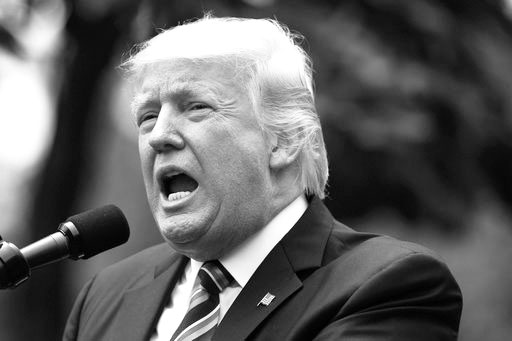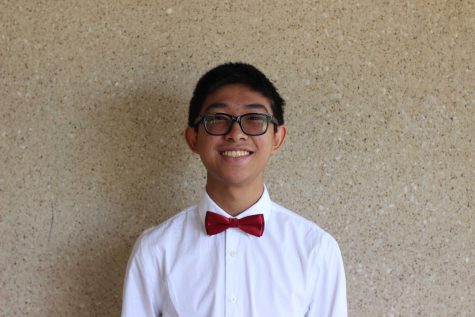Trump copycats world strongmen policies

President Donald Trump speaks in the Rose Garden of the White House in Washington, Thursday, May 4, 2017, before signing an executive order aimed at easing an IRS rule limiting political activity for churches. (AP Photo/Evan Vucci)
May 23, 2017
President Donald Trump’s strange affection for world strongmen and subsequent attempts to incorporate their policies into his own policies are not only ridiculous, but incredibly dangerous.
Trump’s admiration for world strongmen is well documented, ranging from compliments to Russian President Vladimir Putin and North Korean dictator Kim Jong-Un to, recently, extending an invitation to the president of the Philippines, Rodrigo Duterte, to the White House. Duterte, who has thrown support behind extrajudicial killings of drug users in his country, is an unapologetic absolutist whose association with Trump should frighten citizens.
Though his electoral victory back in November lacked the accompanying popular vote, Trump has been convinced of a nonexistent mandate given by the American people to do as he sees fit. As a result, he has followed, to an extent, the terrifying principles he put forth during the election, in which he portrayed himself as the lone savior of the country. He has eagerly tried to incorporate strongman strategies into U.S. foreign policy, attempting to flex military might across the world.
He has already begun to succeed. Like Duterte, Trump has escalated violence. Over the course of 10 days in April, the commander-in-chief unilaterally launched 59 Tomahawk missiles at a Syrian airbase, deployed the largest non-nuclear bomb created in history on Eastern Afghanistan, and stationed a naval strike group near North Korea. Despite pledges to keep America first, the merits of which can be debated in and of themselves, Trump has become the world’s first and foremost strongman.
As the rest of the world hangs on his every tweet, Americans find themselves doing the same. Trump has begun to increasingly incorporate strongman strategies into his domestic policy as well, focusing on immigration. Citing statistics experts have described as inconclusive at best, Trump has decried “American carnage” throughout the country and vowed to crack down on illegal immigration.
Crime, he has theorized, is rooted in deteriorating borders more than in socioeconomically adverse situations. He has taken numerous, unilateral executive actions, making no real progress on his own and producing no notable results.
As a strongman, in fact, the president has demonstrated no substantive improvements, indicating his lack of patience at every turn. He has appeared to be genuinely shocked that he cannot always go it alone like Duterte can. On his three major campaign promises, which include China, Mexico, and Muslims, his efforts have been thwarted by the courts and the people.
His original hostility towards China, with cries of currency manipulation and unequal trade benefits, have ceased in the wake of his meeting with Chinese President Xi Jinping. His original calls to make Mexico pay for a border wall have, in fact, run into a wall of their own. Floating around the idea of a 20 percent import tax drew cries from American citizens’ wallets, and Trump has gone silent on funding ideas since.
His attempts to restrict the flow of immigration from Muslim countries were swiftly and rapidly condemned by Americans, struck down by the courts as unconstitutional, and Trump has gone silent on any further efforts since.
As Trump continues to attempt to shape policy single handedly, it is critical for Americans to remain vocal in their opposition to his strongman tendencies. Never will any strongman policy be beneficial enough to justify the loss of democracy and freedom, and the people of this country must constantly remain vigilant in their defense of democracy. In the words of John F. Kennedy, “the cost of freedom is always high, but Americans have always paid it. We shall never choose the path of surrender.”


